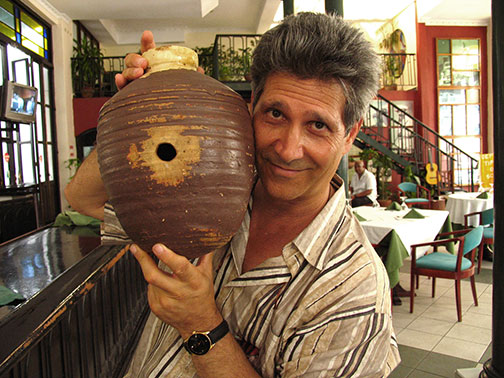About Us
Founded in 2001, Boogalu Productions is a culture, media, and travel organization with headquarters in the San Francisco Bay Area and Havana, Cuba.
Where does the name Boogalu come from ?
Boogaloo or bogalú is a fusion of Afro-American soul music and Latin music that was invented as a cross over style to engage the music-dance communities in New York in the 1970's. I named my company Boogalu (mix of the two spellings) Productions to honor this rich tradition in the Americas of blending cultural expressions.
Creator-Director
Philip Ross
I am an American, from the San Francisco Bay Area with Havana being my second home. I have a background as a Latin and African music scholar, musician, dancer, teacher, and producer, along with a degree in Anthropology. I have been traveling to Cuba since 1999 and currently direct programs for travelers and advance the SocioSwing philosophy and lifestyle.
My life calling has been to study and make relevant and accessible, ancient wisdom and meanings embedded in traditional performing arts and culture originating from Africa and the African diaspora.
My involvement with black culture and Latin music began in the mid-sixties listening on the radio to soul and Latin tinged "Boogaloo" music while also playing rhythm guitar in a teen garage band.
A turning point came in 1969 when I witnessed the Afro-Cuban orchestra of Mongo Santamaria and was transfixed by the percussive force and beauty of the music being played by musicians highly attuned to each other. It's as if I tapped into an ancestral realm that touched my core like nothing else had done before.
During the 1970's-90's my rhythm fascination evolved into a grand passion and involvement in Afro-roots music, dance, and culture, as a student, performer, teacher, and scholar.
One major influence during this time was reading John Chernoff's "African Rhythm and African Sensibility". In this ground breaking book the central theme is how "Africans use music and the other arts to articulate and objectify their philosophical and moral systems which they do not abstract but which they build into the music-making situation itself". These insights along with Chernoff's first hand participation the musical/moral life in Africa, has been a tremendous influence.
In 1994 I started traveling to immerse in the cultures of the African diaspora. Highly attracted to the Afro-Bloco carnival rhythm music of Bahia, Brazil, I made five trips to Salvador to study and participate in that cities carnival music and culture. In the process I began videotaping performances and classes that I would later use in teaching.
While on a family trip to Florida in 1999 I decided to fly to Havana, Cuba to explore the music scene. Within the first week I was astounded by how fast I had connecting with so many people - artists, musicians, dancers, and performing groups. Since I knew their musical language, the Cubans opened their world to me.
On my second trip to Cuba in 2000, I also started videotaping Cuban music and dance events and performances and later launched a media production company - eventually creating a catalog of 16 educational Cuban music & dance video titles.
For the next 14 years I traveled to the island producing educational cultural videos and in 2015 began hosting travelers to the Island.
